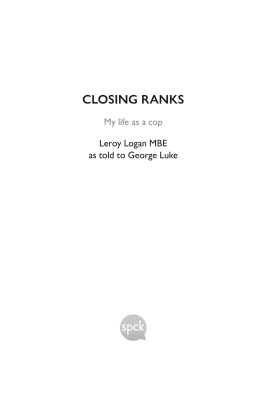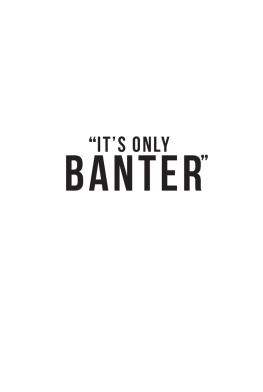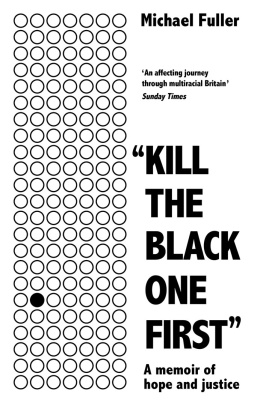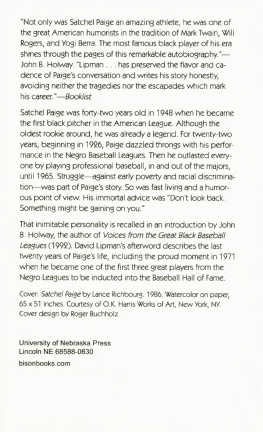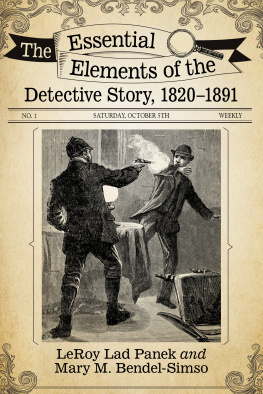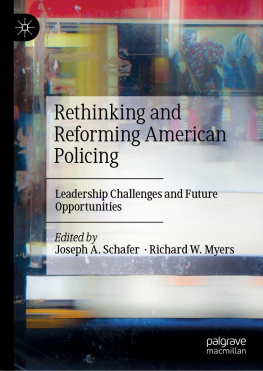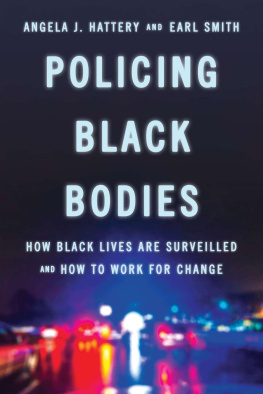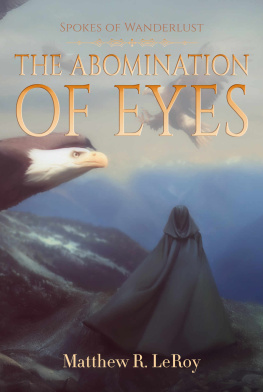Sommaire
Pagination de l'dition papier
Guide
In Closing Ranks, Leroy Logan takes you on a personal journey to the Caribbean, where you are introduced to his parents. They are two ordinary people of Jamaican heritage with an extraordinary ambition to travel to Britain, to contribute to the rebuilding of the country after the war, and to improve the lives of their future family. On arrival, they are met with hostility, but perseverance and resilience win the day, often at great cost.
Leroy, this son of immigrants, is equally ambitious a man with goals of his own, determined to forge his own path. Through a Damascus road experience, he soon learns to depend on God, expressing deep appreciation as he identifies the hand of God at work in his life. This gives him the tremendous courage needed to stand firm against the institutional racism he encounters within the Metropolitan Police.
This autobiography highlights the significance of self-belief and the importance of service to the community. It reveals a deep desire to make a difference, a strong commitment to family and faith, and a determination to model the changes one wishes to see. Plain speaking in describing the highs and lows of being an outstanding member of the Met, Leroy is not afraid to share his vulnerability, and you can feel the pride with which he receives a variety of accolades. An impossible journey has been made possible by faith! Leroy Logan is a great example of achievement against all the odds.
The Rt Revd Rose Hudson-Wilkin, Bishop of Dover
I have known Leroy for many years and have always been impressed with his ability to look at issues from different angles, to work in partnership with others and not to be afraid of making tough decisions. This timely book is a must for anyone who has a heart for justice in our society, offering a deeper understanding of the issues and hope for a better tomorrow.
Patrick Regan OBE, CEO of Kintsugi Hope
An acknowledgement
When I first met Leroy Logan in the mid-1970s, little did I know our paths would cross twenty-five years later through the tragic circumstances around the murder of my son Damilola. Notwithstanding that we were related through his marriage to my cousin Gretl in the early 1980s, I felt reassured that his immense experience in community policing and his genuine desire to build bridges with all sections of the public would have a significant impact in the investigation, and it did.
Therefore, when I was asked to write a recommendation for his book I did so unreservedly because of my genuine admiration for him. Not only in surviving thirty years in the MPS, but also in retirement the last seven years where he still stands up against inequalities and injustices in society, repeatedly giving of his time to grassroots organizations like my charity in the name of my son, the Damilola Taylor Trust. I look forward to working with him in the run-up to the twentieth anniversary of Damilolas death in November 2020.
Richard Taylor OBE
First published in Great Britain in 2020
Society for Promoting Christian Knowledge
36 Causton Street
London SW1P 4ST
www.spck.org.uk
Copyright Leroy Logan and George Luke
All rights reserved. No part of this book may be reproduced or transmitted in any form or by any means, electronic or mechanical, including photocopying, recording, or by any information storage and retrieval system, without permission in writing from the publisher.
SPCK does not necessarily endorse the individual views contained in its publications.
Unless otherwise noted, Scripture quotations are taken from the New Revised Standard
Version of the Bible, Anglicized Edition, copyright 1989, 1995 by the Division of
Christian Education of the National Council of the Churches of Christ in the USA.
Used by permission. All rights reserved.
The quotation marked KJV is from the Authorized Version of the Bible (The King James Bible), the rights in which are vested in the Crown, and is reproduced by permission of the Crowns Patentee, Cambridge University Press.
The quotation marked RSV is from the Revised Standard Version of the Bible, copyright 1946, 1952 and 1971 by the Division of Christian Education of the National Council of the Churches of Christ in the USA. Used by permission. All rights reserved.
British Library Cataloguing-in-Publication Data
A catalogue record for this book is available from the British Library
ISBN 9780281083466
eBook ISBN 9780281083480
1 3 5 7 9 10 8 6 4 2
Typeset by Nord Compo
First printed in Great Britain by TJ International
eBook by Nord Compo
This digital document has been produced by Nord Compo.
Foreword
I first met Leroy when I was researching stories about the West Indian experience for my BBC project SMALL AXE, a collection of films about the real lives of extraordinary West Indians living in London from the late 60s to the early 80s a time of struggle with the authorities, for cultural identity and recognition. I was interested in stories about remarkable people or events which I felt had been ignored, or swept under the carpet.
Leroys story was at once both ordinary and unique: an ordinary man, who made the best of everything for himself whether it was in his education or his determination in sticking with the police force; even his immaculate appearance told me a story.
For a West Indian man to join the police force in the early 80s, at the time of the Brixton uprisings, and stick with it in the way Leroy did, is unique. I was amazed and intrigued by the way he had stood his ground and progressed within the Metropolitan Police against so many obstacles: hostility, outright racism and being repeatedly overlooked for promotion. What interested me the most was his way of joining the force even though his father had recently been badly beaten up by two police officers. What kind of man was he?
Steve McQueen
May 2020
Prologue:
When two worlds collide
Sometimes your worst nightmare can be your biggest breakthrough.
In 1982, I was in my comfort zone. My first love was science, and I had secured a place in one of the most eminent teaching hospitals in the world, headed by a world-renowned gastroenterologist. CV-wise, I was set for a career in science. And then all of a sudden, the call of policing hit. It took me completely out of my comfort zone and in all honesty, it was my worst nightmare.
In signing up for the Metropolitan Police, I would be joining an organization I had no love for. I was the victim of the Sus laws growing up; Id seen the way police officers treated people who looked like me, and it was sickening. And yet I sensed that there was a purpose for me in the Met, even though I knew that joining would set two worlds my personal life and my professional life on a collision course.
Those two worlds started colliding before Id even put a police uniform on, when two officers viciously assaulted my father shortly after I submitted my application to join the Met. They would collide again and again over the years that followed. But I never once imagined that they would collide in such a dramatic way as they did with the murder of Damilola Taylor in the autumn of 2000.
I first encountered the Taylor family in the early 1970s when my wife Gretl and I were dating. Damilolas father, Richard, is a cousin of Gretls; I would often see him and his then girlfriend, Gloria, at various family events Gretl took me to. We were all in our twenties back then. Unfortunately, we lost touch after Richard and Gloria got married and returned to Nigeria to raise their family.
I didnt instantly make the connection when the tragic story of Damilolas murder hit the headlines in November 2000. I can still recall the CCTV footage capturing the last moments of his life, as he skipped innocently from the library on his way home to the North Peckham Estate. Those vivid images touched my heart, both as a parent and as a police officer. A murder investigation (code name Operation Seale) was launched shortly afterwards, but I quickly gathered from reliable internal sources that it wasnt making much progress.

